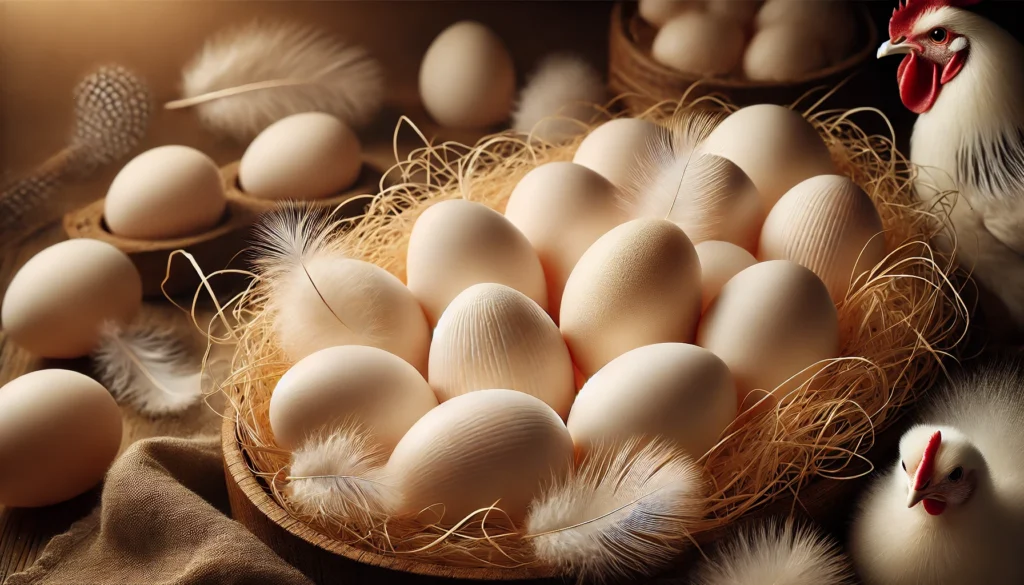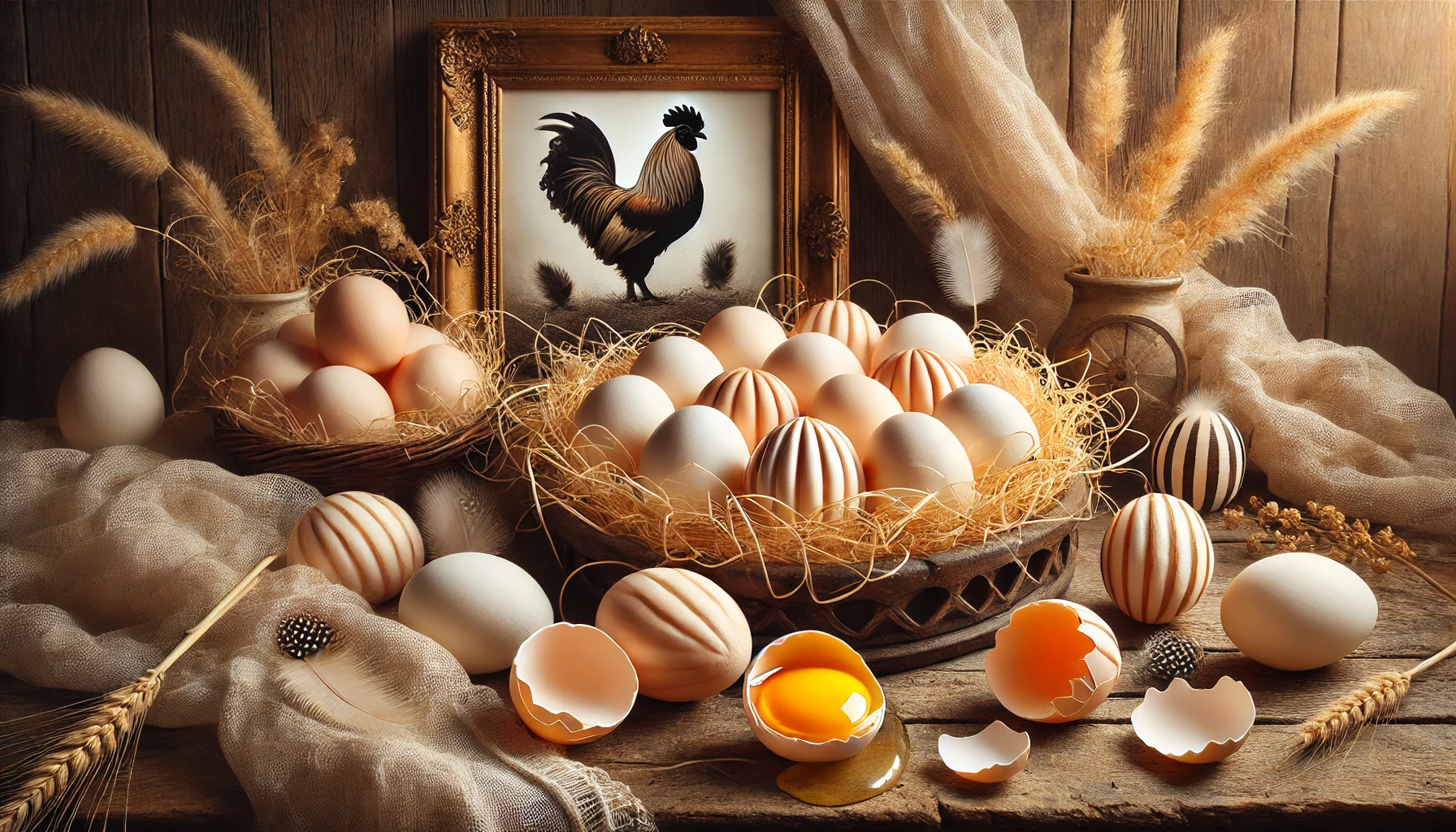Silkie chickens, known for their unique appearance and calm temperament, are not just admired for their fluffy feathers and black skin. Their eggs are also a noteworthy feature, contributing to the breed’s overall charm. Despite being smaller than those of other chicken breeds, Silkie chicken eggs are considered a delicacy and are highly sought after by poultry enthusiasts and chefs alike. This article delves into the characteristics of Silkie chicken eggs, their culinary uses, and their role in modern poultry farming.
Characteristics of Silkie Chicken Eggs
- Size and Appearance
Silkie chickens lay small eggs, typically around 30-40 grams, making them smaller than the standard eggs produced by larger breeds like the Rhode Island Red or Leghorn. The eggshells of Silkie chickens are often white, but they can occasionally have a slight tint of cream or light brown, depending on the individual bird. - Texture and Flavor
The eggs of Silkie chickens are known for their rich flavor and smooth texture. Many people describe them as having a slightly more intense taste compared to the eggs from other chicken breeds. The yolk is often a deep golden color, which is indicative of the bird’s diet and lifestyle, and the whites are firm yet tender when cooked.
Culinary Uses of Silkie Chicken Eggs
- Gourmet Dishes
Due to their rich flavor and appealing appearance, Silkie chicken eggs are considered a gourmet product in many parts of the world. They are used in fine dining and specialty dishes such as egg-based sauces, custards, and gourmet omelets. The eggs’ distinctive taste adds an extra dimension to dishes, making them a favorite ingredient for chefs seeking something unique. - Cultural Significance in Asia
In many Asian countries, particularly China, Silkie chicken eggs are highly prized for their perceived medicinal properties. It is believed that the eggs, like the meat, have health benefits, such as boosting energy and improving circulation. Silkie eggs are often used in traditional remedies or served in soups designed to restore vitality and promote wellness. - Fertility and Breeding
Silkie eggs are also essential for breeding purposes. Because of their smaller size, they are less commonly sold commercially, but Silkie breeders often use them to maintain or expand their flocks. The Silkie chicken’s tendency to go broody (the instinct to sit on and hatch eggs) makes it a reliable mother, and many breeders favor the breed for this reason.

Silkie Chicken Eggs in Modern Times
- Increased Demand Among Poultry Enthusiasts
In recent years, there has been an increase in demand for Silkie chicken eggs due to the growing popularity of backyard farming and homesteading. People interested in raising ornamental chickens or those who seek to add variety to their egg baskets often choose Silkie chickens for both their unique eggs and their captivating appearance. - Sustainability and Ethical Farming
Many people who raise Silkie chickens also value the breed for its sustainable and ethical farming practices. Since Silkie chickens are often kept in smaller flocks and are more docile than other breeds, they fit well into homesteading and small-scale farming operations. Their eggs, like those of other free-range chickens, are often considered a more ethical and environmentally friendly choice.
Conclusion
Silkie chicken eggs are a unique and prized feature of this fascinating breed. While they may be smaller in size, their rich flavor, beautiful golden yolks, and culinary versatility make them a highly sought-after delicacy. Whether used in gourmet cooking, traditional medicine, or breeding, Silkie eggs have earned their place in kitchens and farms around the world. As the demand for specialty poultry products continues to grow, Silkie chicken eggs are sure to remain a beloved choice for those who appreciate quality, flavor, and uniqueness.

